It’s the best month of the year for horror fans (yay!)—and what better way to spend it than binge-watching the best films of the Master of the Macabre, Vincent Price? If you think that classic horror is always hammy and campy, think again. Many of Price’s best films are bonafide classics and easily accessible through disc or streaming services (or YouTube for some of them, if you’re desperate.) True, he did like to serve up his performances with large slices of ham now and then, but those were almost always for comedy-horrors like Theater of Blood (1973), where his characters were supposed to be campy and hammy.
Trained on the London stage, Price started out as an actor for mainstream films in the 1940s, and worked for prestigious directors like Joseph L. Mankiewicz, Otto Preminger and Cecil B. DeMille. But he never really made his mark in the film business until he segued into the horror genre. Despite being immensely talented, at 6’4”, Vinnie was just too tall to make it as a Hollywood leading man, where the ideal male height was around 6’, give or take an inch or two on either side. (Price’s great friend and fellow horror icon, Sir Christopher Lee, faced the same problem: at 6’5” he was even taller than Vinnie.) In addition to the height issue, as the 50s marched on, Vinnie’s classic, stage-trained acting style would eventually be considered “old-fashioned,” and pushed aside in favor of the more “naturalistic” acting styles of younger actors such as Marlon Brando, James Dean, and Paul Newman.
In classic horror, however, a stage-trained acting style and perfect diction—which Price had in spades—were considered assets, because so many plots featured evil aristocrats, sinister industrialists, or cultivated mad scientists. He made so many horror films that by the time he passed on in 1993 at the age of 82, Price had become world-famous, beloved by millions.
This is my list of the 10 best of Vinnie; feel free to post your yeas or nays in the comments below (Tingler super-fans—I know you’re outraged that it didn’t make the top 10!)
Dragonwyck (1946), written and directed by Joseph L. Mankiewicz, starring Price, Gene Tierney, Walter Huston, and Jessica Tandy. This Gothic suspense drama is, as far as I know, the only mainstream, big-budget film featuring Price as the male lead. And he’s very good as Nicholas Van Rijn, the brooding scion of a wealthy, Dutch-American aristocratic family, who rules a vast Hudson Valley fiefdom with an iron fist. The gorgeous Tierney plays a country girl who travels to Dragonwyck, the sprawling Van Rijn estate, to care for Nicholas’s young daughter. Soon, however, Nicholas’s wife passes away under mysterious circumstances, and the country girl becomes romantically involved with the widower. The plot is pretty obvious, but the acting, pacing, sets, and b&w cinematography are all excellent. Dragonwyck was the debut film of future A-lister Mankiewicz (All About Eve, 1950), who later won four Academy Awards for writing and directing. Vinnie appears in this film without his trademark mustache, as he did in many other early films. Look for Harry Morgan, aka Colonel Sherman Potter from the M*A*S*H television series, in a supporting role as a tenant farmer who rebels against Van Rijn. On disc; a good copy can be found on YouTube as of this writing.
Laura (1944), directed by Otto Preminger, starring Price, Gene Tierney, Dana Andrews, Clifton Webb, and Dame Judith Anderson. Preminger’s film noir masterpiece about the murder of a beautiful Manhattan advertising executive always turns up on lists of 10 best-ever noirs. It’s probably the most important film Price ever made, and would be farther up on this list, but for the fact that he’s only fourth-billed. Still, as Shelby Carpenter, the feckless, gigolo boyfriend of the murder victim, Price steals every scene he’s in, including those with the titled British actress, Judith Anderson. And his role is important, as initially he’s the chief suspect in the killing of his fiancée. Interestingly, Vinnie starred with Tierney in a total of four films, before the tragic beauty’s career was cut short by illness. On disc and streaming.
The Fly (1958), directed by Kurt Neumann, starring Price, Al Hedison, and Patricia Owens. This sci-fi classic was highly influential for other sci- fi productions, despite being a low-budget, B-movie. Price is third-billed but has more onscreen time than the headliner, Al/David Hedison (who is still alive and still working at the age of 91.) This is one of the few famous roles where Vinnie plays a non-sinister character, that of Francois Delambre, the loving brother of Andre, an eccentric scientist played by Hedison. Andre invents a device that transports matter through space by disassembling it and then recombining it at the desired location. (The device, called a transporter, has large glowing rings at the bottom and very likely inspired the transporter from Star Trek.) When Andre tests the device on himself, a fly is unknowingly transported with him, resulting in a disaster that gives Andre the head and arm of the fly. Andre’s wife (Patricia Owens) tries to help, but she eventually ends up being accused of murder; Vinnie as Francois steps in to help clear her name. It’s not a particularly great role for Price, but it is a great film. The Fly was remade in 1986 by David Cronenberg, with a bigger budget and better technology, but the original still packs a wallop. On disc and streaming.
House of Wax (1953), directed by Andre De Toth; starring Price, Phyllis Kirk, Frank Lovejoy, Carolyn Jones, Charles Bronson, and Paul Picerni. Price’s first big horror hit remains one of his best. (He played the title character in The Invisible Man Returns in 1940, but that didn’t attract much attention.) Price plays Dr. Jarrod, a brilliant sculptor who operates a famous wax museum. When his museum burns in a fire, Jarrod loses everything, and also suffers permanent injury to his gifted hands. He can no longer sculpt his figures, but that’s not a problem: he’s found a new way to create amazingly lifelike wax statues, and he reopens the museum. Things start to go south when the fiancée of one of Jarrod’s employees (Phyllis Kirk) decides that the new wax figures are a little bit too lifelike. Price is excellent as the increasingly deranged Jarrod, and the museum sets are wonderful—who wouldn’t want to visit the Chamber of Horrors? This film was originally shown in 3-D, and, like all 3-D films, features a lot of flying objects aimed at the audience; these elements only add to its mid-century charm. Look for a young Charles Bronson playing Jarrod’s chief henchman (under his real name Charles Buchinsky), and Carolyn Jones, aka the future Morticia Addams, as one of Jarrod’s victims. On disc and streaming.
House on Haunted Hill (1959), produced and directed by William Castle; starring Price, Carol Ohmart, Richard Long, and Elisha Cook, Jr. This beloved fan favorite is essential Price viewing, despite the incredibly cheap production values and hokey special effects that weren’t scary even in 1959. Price plays Frederick Loren, a wealthy industrialist who has rented a notoriously spooky mansion so that his latest wife (Carol Ohmart) can throw a macabre house party. They invite a motley collection of guests, each of whom is facing financial hardship, and offer each guest $10K if they can stay in the house until morning. Price memorably plays a variation on the suave, wealthy, sinister host, a part he played numerous times in his career. He seems bent on murdering his latest wife, but she has ideas of her own. Prolific character actor, Elisha Cook Jr., plays the owner of the house, who’s convinced that it’s ridden with murderous ghosts, and Richard Long, the future Jared Barkley from The Big Valley television series of the 60s, plays one of the guests. The witty script, competent acting, and twisty plot make up for the cheap look of nearly everything. Avoid the 1999 remake, starring Geoffrey Rush in the Price role, like the plague. On disc and streaming.
House of Usher (1960), directed by Roger Corman; starring Price, Mark Damon, Henry Ellerbe, and Myrna Fahey. Corman has long had a reputation as a low-budget schlockmeister (well-deserved, for the most part.) However, that description doesn’t apply to the eight Edgar Allan Poe-themed films he directed in collaboration with Price. House of Usher, based on the famous short story by Poe, was the first of the series and one of the best. Price plays Roderick Usher, the scion of a doomed family haunted by the evil deeds of past ancestors. He’s clean-shaven and platinum blonde, a startlingly different look for The Vinster. But he’s still got that patented Vinnie vibe as the brooding, unhinged Roderick, who believes that the “evil” Usher bloodline must end with himself and his beautiful sister, Madeline (Myrna Fahey). Phillip Winthrop (Mark Damon) is a young outsider who fell in love with Madeline when she was visiting in Boston and has arrived at Usher House to take Madeline away from the grim family manse. Roderick has other ideas and schemes to keep them apart, by foul means if necessary. In 2005, this film was added to the National Film Registry as a culturally significant work of cinema. The ever-thrifty Corman reused the sets, furniture, stock footage, and costumes in his other Poe/Price films, a fact that is apparent to those who might be inclined to binge-watch them on the same day. The great horror writer Richard Matheson wrote the script, as he did for several of the other Corman/Price/Poe films. On disc and streaming.
Theater of Blood (1973), directed by Douglas Hickox; starring Price, Diana Rigg, Ian Hendry, Jack Hawkins, Coral Browne, and Robert Morley. Price considered this British-made black comedy his favorite of all of his films, and no wonder. He gets to chew more scenery than a pack of beavers at a logging convention, and he co-stars with his future third wife, Coral Browne, who plays one of his victims. As Edward Lionheart, The Vinster is a hambone Shakespearian actor who dramatically commits suicide in front of the snooty London theater critics who sneered at his performances. Shortly afterward, the critics are serially bumped off in bizarre fashion, each in a way that references a violent scene from Lionheart’s favorite Shakespearian plays. Is Lionheart really dead? Diana Rigg, aka Mrs. Peel from The Avengers 60s British television series, plays his supposedly grieving daughter. In addition to pompously spouting Shakespearian dialogue, Price’s role calls for him to adopt various disguises, including one indescribably hilarious turn as a gay hipster hairdresser, garbed in a huge, ginger-colored Afro wig and hippie love beads. Viewers will have to see it to believe it. On disc and streaming.
The Abominable Dr Phibes (1971), directed by Robert Fuest; starring Price, Joseph Cotten, Hugh Griffith, Terry-Thomas, and Virginia North. Prominent doctors in London are being killed off in bizarre ways, and police are stumped. Enter Vinnie as Dr. Phibes, a mechanical genius, concert organist, and Biblical scholar. Phibes supposedly died in a fiery car crash, but clues point to him as the killer — he’s the bereaved husband of a woman who died on the operating table under a surgical team that consisted of the departed doctors. (This film has nearly the same plot as Theater of Blood, except that here, victims are being bumped off according to Biblical plagues, rather than Shakespeare’s plays.) It turns out Phibes isn’t dead, but he has been so disfigured that he can only speak with the aid of a device he invented. Prince handles the mechanical voice of the device perfectly. Everything in this film is visually stunning, carefully plotted, and wonderfully acted. The music is pretty fantastic also. The art director, Bernard Reeves, deserved an Oscar; sadly this film is his only full-length film credit. Fuest also directed the notoriously schlocky William Shatner drive-in film, The Devil’s Rain (1975), but don’t let that put you off. This film is countless leagues above The Devil’s Rain in quality. On disc.
Masque of the Red Death (1964), directed by Roger Corman; starring Price, Hazel Court, Patrick Magee, and Jane Asher. The last of the eight Poe-themed films created by the Price/Roger Corman collaboration is certainly the best of the lot! Charles Beaumont, who penned so many memorable scripts for the original Twilight Zone series, co-wrote the script. The stunning, brilliantly colored cinematography was supplied by Nicholas Roeg, the future A-list director of Don’t Look Now and The Witches. The sets — the movie was filmed at the UK’s famed Elstree Studios — are better and less hokey-looking than the usual Corman fare. The film is based on Poe’s short story of the same title, concerning a wealthy medieval prince who throws a masquerade party at his castle while his realm is ravaged by a horrible plague called “the Red Death.” Price plays the evil Prince Prospero straight, with none of the eye-winking ham he displayed in other villainous roles. As the Satan-worshipping Prospero, he’s just really, really evil. British horror veteran Hazel Court, who co-starred with Price in several other films, plays Prospero’s witchy consort, Julianna, while beautiful Jane Asher (former fiancée of Paul McCartney) plays a naive village girl whom Prospero is trying to seduce to the dark side. The script includes a sub-plot based on another Poe tale, Hop-Frog, about a court jester who extracts a memorably gruesome revenge on a cruel lord (Patrick Magee) who works for Prospero. The beginning and end show the influence of Ingmar Bergman, everybody’s favorite auteur from the 60s. On disc and streaming.
The Last Man on Earth (1964), directed by Ubaldo Ragona and Sidney Salkow; starring Price, Franca Bettoia, Giacomo Rossi Stuart, and Emma Danielli. This low-budget, criminally underrated, Italian-made film is arguably Price’s best screen performance. Based on the Richard Matheson novel I Am Legend, the film features Vinnie as a scientist who appears to be the only survivor of a worldwide plague that first kills its victims, then brings them back as mindless zombie/vampires if their bodies aren’t burned. He spends his grim days burning corpses and hunting and staking vampires; his nights are spent hunkering down in his formerly beautiful house, while the vampires attack the house with bricks and clubs. (In a sad twist of fate, the attacking vampires are led by his former best friend, Ben Cortman (Giacomo Rossi Stuart.) As the sole presence onscreen for much of the film, Vinnie must carry the action by himself and does so magnificently, accompanied by his own ironic, stream-of-consciousness voiceover. (Best line: “I used to shop for a car, now I shop for a hearse.”) Richard Matheson, who co-wrote the script, reportedly dismissed this film as “not scary,” but the hellishness of Price’s day-to-day existence is far more frightening than any standard graveyard or haunted house scene. The great noirish b&w cinematography adds to the disturbing atmosphere and the bumbling, shuffling zombie-vampires may have inspired Romero’s seminal Night of the Living Dead. This film is the first adaption of Matheson’s famous novel: the others are The Omega Man (1971) with Charlton Heston, and I am Legend (2007) with Will Smith. On disc. A good copy can also be found on YouTube as of this writing.
Honorable Mention
The Tingler (1959), directed by William Castle. This is another b&w Castle cheapie that’s beloved by many Price fans. Vinnie plays a doctor trying to research the effects of human fear; this research produces a creature called The Tingler, which gets loose and terrorizes a revival movie theater that shows old silent films. The plot is intertwined cleverly with a murder mystery involving the married couple who operate the theater. On disc and streaming.
Witchfinder General aka The Conqueror Worm (1968), directed by Michael Reeves; starring Price, Ian Ogilvy, Rupert Davies, Hillary Heath, and Robert Russell. Another fan favorite, this British-made film features Price as Matthew Hopkins, an infamous “witchfinder” during the 17th Century English Civil War. Most of the horror features the torture and killing of Hopkins’s victims. This film represents Price’s foray into the newer horror styles of the latter 20th Century, relying less on Gothic conventions and theatrical acting, and more on gore and “naturalistic” acting. On disc; a good copy can be found on YouTube as of this writing.
Vincent (1982), directed by Tim Burton. Price narrates this short, animated film featuring a creepy little boy who loves Poe and dreams of growing up to be Vincent Price. It’s very charming and visually and thematically close to future neo-Goth Burton films like Beetlejuice and Corpse Bride. Eight years later, Burton cast Price in his last major film role, as The Inventor in Edward Scissorhands (1990), another Price film that deserves an honorable mention. On disc for Vincent; numerous copies can be found on YouTube as of this writing. On disc and streaming for Edward Scissorhands.
The House of the Long Shadows (1983), directed by Pete Walker; starring Price, Desi Arnaz, Jr., Julie Peasgood, Christopher Lee, Peter Cushing, John Carradine and Sheila Keith. This movie is famous not for being good (it’s mediocre at best), but because it’s the only film in existence that features four great horror icons of the 20th Century: Price, Christopher Lee, Peter Cushing, and John Carradine. The creaky comedy-horror plot stars Desi Arnaz Jr. (son of Lucille Ball and Desi Sr.) as a writer who stays at a remote Welsh mansion while trying to write a novel in 24 hours. The scenes with Arnaz Jr. are sheer torture, but those involving the four horrormeisters playing off each other are sheer magic. Price hams it up as only he can do, and he gets to speak the script’s only memorable line: “Don’t interrupt me while I’m soliloquizing!” On disc and streaming.
 Horror News | HNN Official Site | Horror Movies,Trailers, Reviews
Horror News | HNN Official Site | Horror Movies,Trailers, Reviews
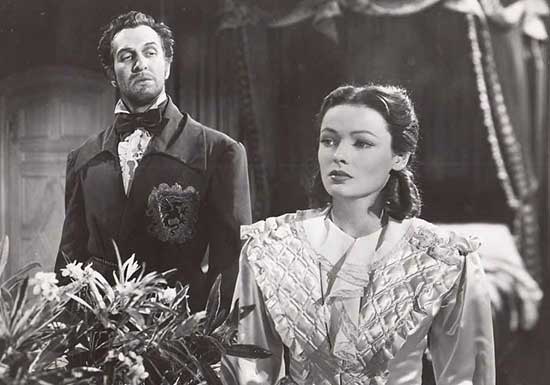
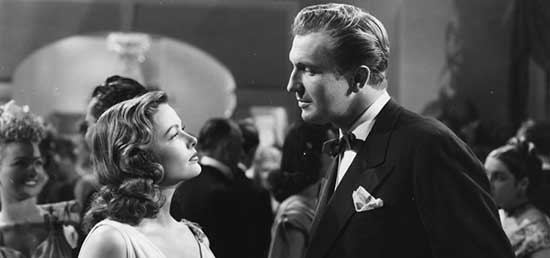
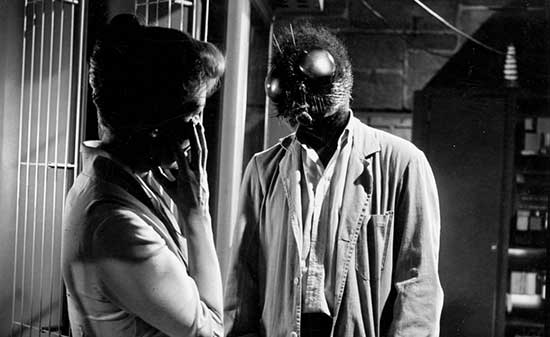
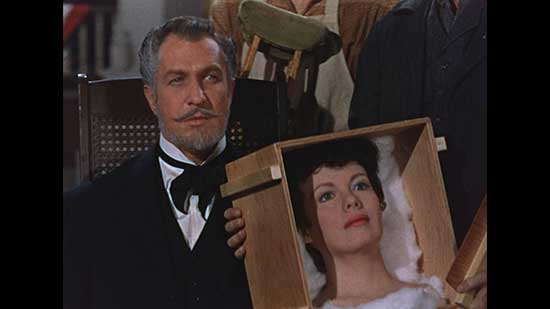
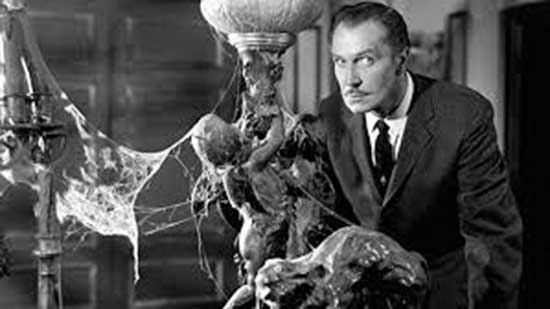
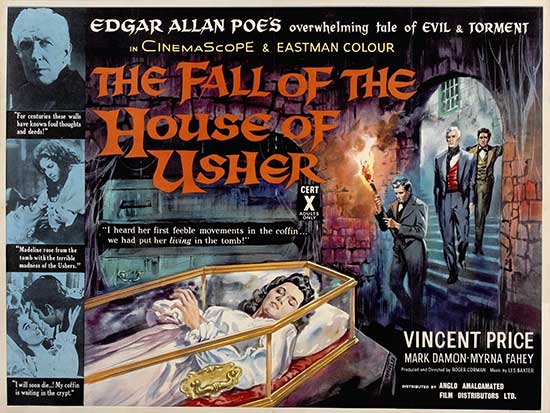
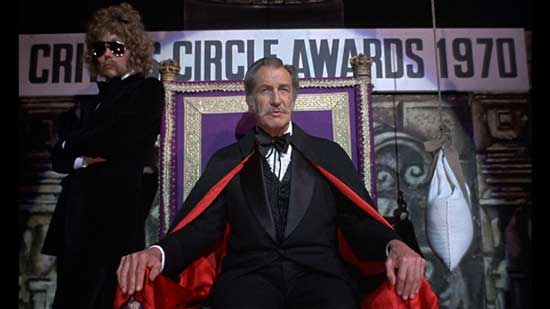
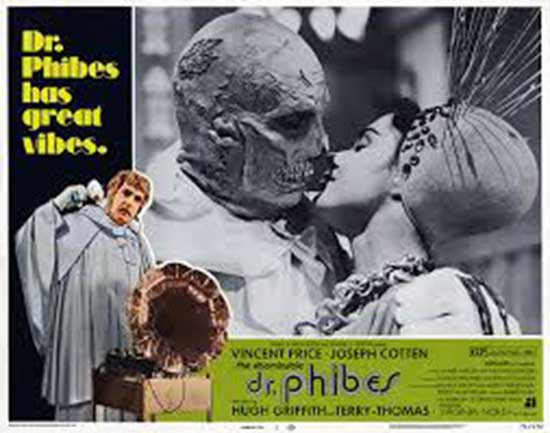
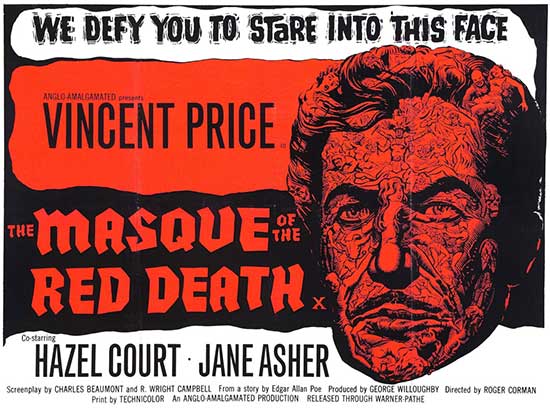
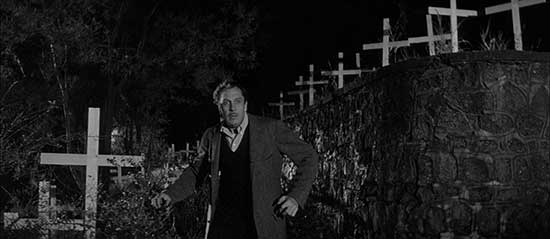
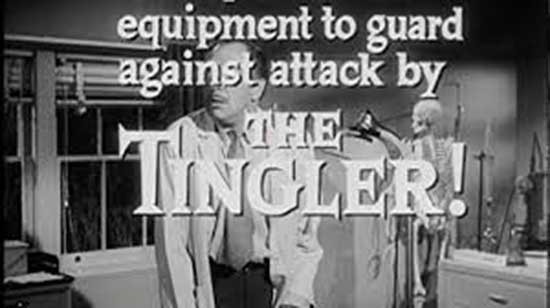
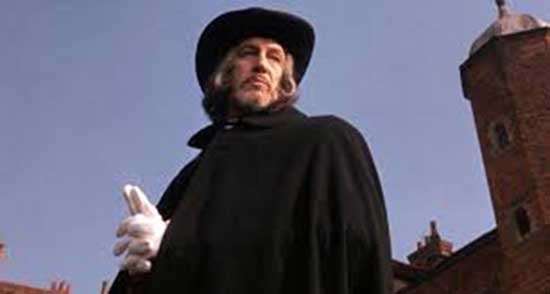
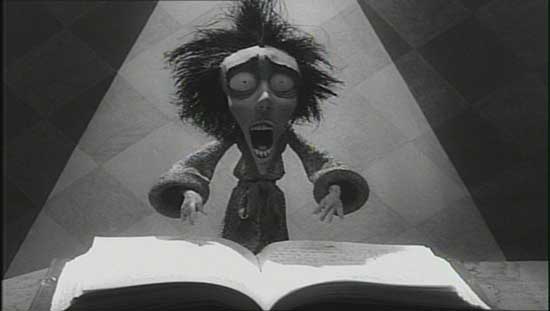
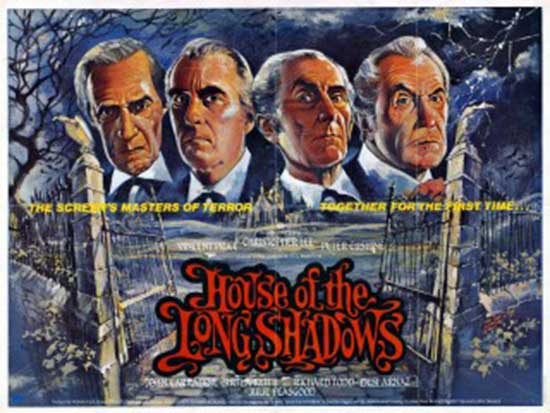
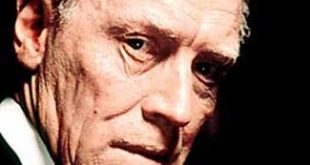
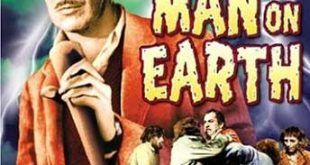
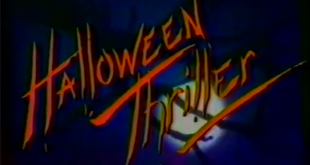
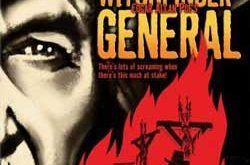
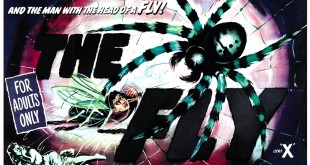
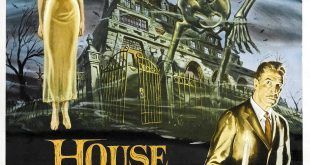
i had thought at 1st this would be a top-shelf review especially after looking at ranker.com. you certainly start off well enough but quickly kind of skid off the rails. firstly, it is quite misleading to state that he “trained on the London stage”; he started here in america and spent about a year working with orson welles’ MERCURY THEATRE & then returned to the states. you then list under “DRAGONWYCK” that “Vinnie appears in this film without his trademark mustache” while including a still that clearly shows him with a mustache(??!!). you then of course pivot predictably to his horror fare jumping over “the baron of arizona” which is one of the best things he ever did & as a “leading man” no less. and unfortunately, the inclusion of “the last man on earth” as one of his 10 BEST is questionable at best. the author richard matheson who wrote the book AND worked on the screenplay thought him terribly miscast & he LOVED price & had written for him before. in fact, matheson was so put off by the net result he had himself credited with a pseudonym. it’s not a very good flick & price was not ideal by any means for the role. better to have included “brigham young”, “the song of bernadette” or “wilson”. and certainly ANYTHING opposite laura tierney. excellent chemistry.
Thanks for your comments. 1. Vincent Price does indeed appear cleanshaven throughout Dragonwyck; the scene from the photo is the one where his character shuts himself up and stops dressing and shaving. 2. I didn’t include ant if his non-horror films because this is a horror movie site. 3. I don’t agree with Matheson that The Last Man on Earth is a bad film and I do believe it’s Vinnie’s best performance in a horror film. 4. It’s GENE Tierney, not Laura Tierney.